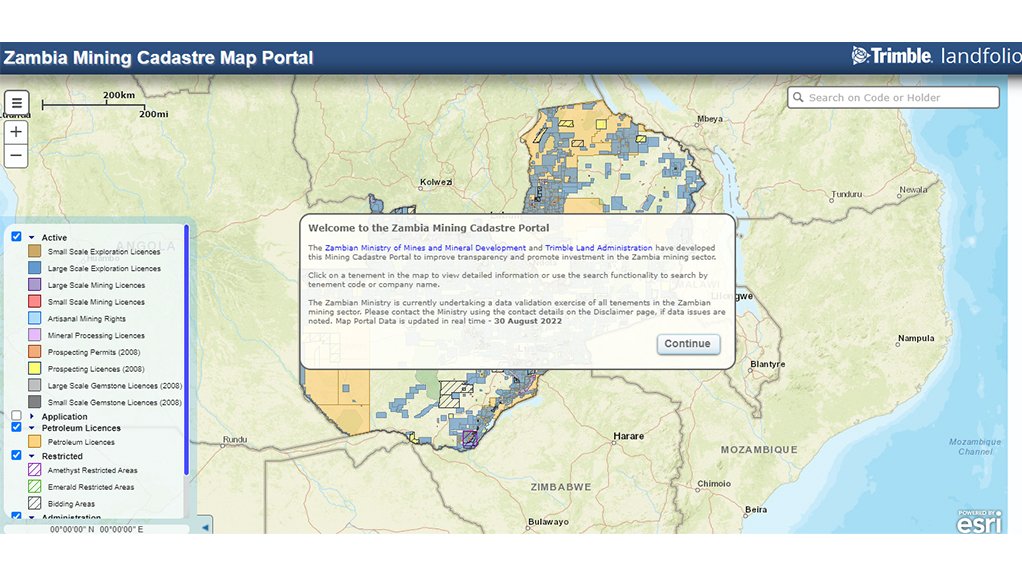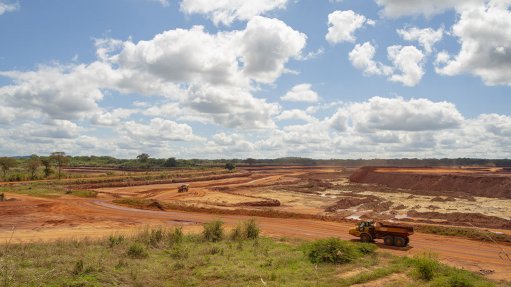MMDA review expected to be extensive



MMADIKA MOLOI The proposed changes to the Mines and Minerals Development Act are expected to encourage development at all levels of the mining sector and sustained investment in small-scale and gemstone exploration projects
LETTER OF THE LAW The actual review of the Mines and Minerals Development Act may start only once the Mining Cadastre Department has completed its review of the status of compliance for all licences issued under the Act
Law firm Webber Wentzel expects the review of Zambia’s Mines and Minerals Development Act (MMDA), No 11 of 2015, to take a considerable amount of time to complete, as the current government addresses the challenges hindering the mining industry’s already significant contribution to the country’s economic development.
President Hakainde Hichilema’s government has adopted a welcoming approach to business and considers players in the mining sector partners in the development of Zambia’s mining industry, says Webber Wentzel partner Mmadika Moloi.
“Government will likely consider international best practice, the findings from the review of the licences currently issued and the views of the existing players in the mining industry to ensure that the amended legislation enables companies to increase their production capacity.”
This is especially pertinent in realising the Zambian government’s goal of increasing copper production from 830 000 t to more than three-million tonnes in the next ten years.
However, Moloi suspects that the actual review of the MMDA will start only once the Mining Cadastre Department (MCD) has completed its review of the status of compliance for all licences issued under the Act.
The MCD started its review following the election of the new government on August 12, last year, and has not renewed licences or accepted licence renewal applications since, she highlights.
Encouraging Exploration
The proposed changes to the MMDA are expected to encourage development at all levels of the mining sector and sustained investment in small-scale and gemstone exploration projects, says Moloi.
“Zambia’s significant reliance on copper mining has resulted in the under exploitation of other sub mineral sectors, such as manganese, gold and gemstones, which would enable the country to enhance socioeconomic development.”
She postulates that the new Act should ensure that small-scale and gemstone exploration licences, which are not renewable under the MMDA, be allowed to be renewed for the same duration as large-scale exploration licences.
The holder of an exploration licence applying for renewal must relinquish at least 50% of the initial exploration area on the first renewal and at least 50% of the balance on the second renewal, regardless of circumstance.
By allowing for licences to be renewed on a 100% basis in instances where projects are disrupted, owing to the validity of licences being questioned, exploration companies will be provided with greater certainty. This measure ensures that holders do not slow development by effectively hoarding licences and never developing the licence area.
In circumstances involving the absence of environmental approvals for exploration projects, for example, licence holders have previously provided commercial justifications for the renewal of their licences on a 100% basis.
“However, the MCD does not have the power to renew licences on a 100% basis, despite the same occurring in practice,” elaborates Moloi.
Should the new Act allow for an exploration licence to be renewed on a 100% basis, it will also reduce the barrier to entry by mitigating the considerable costs that exploration companies incur prior to consummating a transaction with a licensed player.
The Act should also clearly distinguish instances when the Minister’s prior approval should be obtained. The current MMDA requires the Minister’s approval to be obtained where an interest in a mining right is transferred or subdivided.
“However, what is considered to be an interest is not defined by the Act and this leads to uncertainty, as the determination of the transfer of an interest or dealing with an interest is decided on a case-by-case basis, leading to there being no established practice,” states Moloi.
However, Webber Wentzel is not calling for the outright removal of the requirement for prior approval by the Minister, but merely for the instances under which approval is permitted to be clearly set out to ensure certainty, she stresses.
Realising Mining Potential
The availability of geological information would be a catalyst for long-term investment in Zambia’s mining sector, but its scarcity continues to undermine the planning process of the mining sector, hindering nationwide development, advises Moloi.
“The MMDA requires the Director of Geological Survey to, among other aspects, undertake the geological mapping of Zambia and exploration operations on behalf of the country, provide data concerning its geology and mineral resources, and assist members of the public with information relating to geological matters.”
It remains only for this provision to be fully enforced to ensure that adequate and sufficient geological information is readily available to players in the mining sector, she advises.
However, the country still lacks a mineral asset valuation code, which has potentially led to the over- or under-pricing of mining assets to the detriment of its citizens or the benefit of multinational enterprises.
This is in addition to the MMDA’s not expressly providing guidance on how the Director of Geological Survey should determine the value of minerals for import or export purposes.
While the current government has improved Zambia’s mining tax policy, “it is likely that more changes will follow once the reviews of the current licences and the MMDA are completed by government in conjunction with the MCD and the Ministry of Mines and Mineral Development,” concludes Moloi.
Comments
Press Office
Announcements
What's On
Subscribe to improve your user experience...
Option 1 (equivalent of R125 a month):
Receive a weekly copy of Creamer Media's Engineering News & Mining Weekly magazine
(print copy for those in South Africa and e-magazine for those outside of South Africa)
Receive daily email newsletters
Access to full search results
Access archive of magazine back copies
Access to Projects in Progress
Access to ONE Research Report of your choice in PDF format
Option 2 (equivalent of R375 a month):
All benefits from Option 1
PLUS
Access to Creamer Media's Research Channel Africa for ALL Research Reports, in PDF format, on various industrial and mining sectors
including Electricity; Water; Energy Transition; Hydrogen; Roads, Rail and Ports; Coal; Gold; Platinum; Battery Metals; etc.
Already a subscriber?
Forgotten your password?
Receive weekly copy of Creamer Media's Engineering News & Mining Weekly magazine (print copy for those in South Africa and e-magazine for those outside of South Africa)
➕
Recieve daily email newsletters
➕
Access to full search results
➕
Access archive of magazine back copies
➕
Access to Projects in Progress
➕
Access to ONE Research Report of your choice in PDF format
RESEARCH CHANNEL AFRICA
R4500 (equivalent of R375 a month)
SUBSCRIBEAll benefits from Option 1
➕
Access to Creamer Media's Research Channel Africa for ALL Research Reports on various industrial and mining sectors, in PDF format, including on:
Electricity
➕
Water
➕
Energy Transition
➕
Hydrogen
➕
Roads, Rail and Ports
➕
Coal
➕
Gold
➕
Platinum
➕
Battery Metals
➕
etc.
Receive all benefits from Option 1 or Option 2 delivered to numerous people at your company
➕
Multiple User names and Passwords for simultaneous log-ins
➕
Intranet integration access to all in your organisation




















